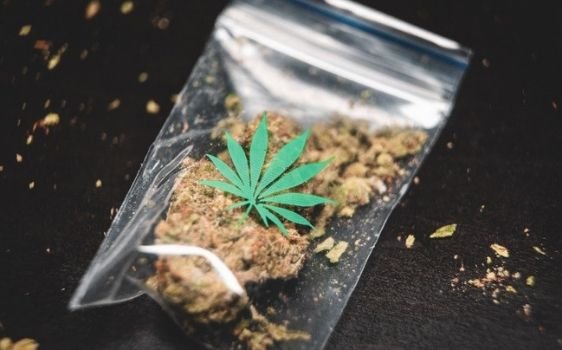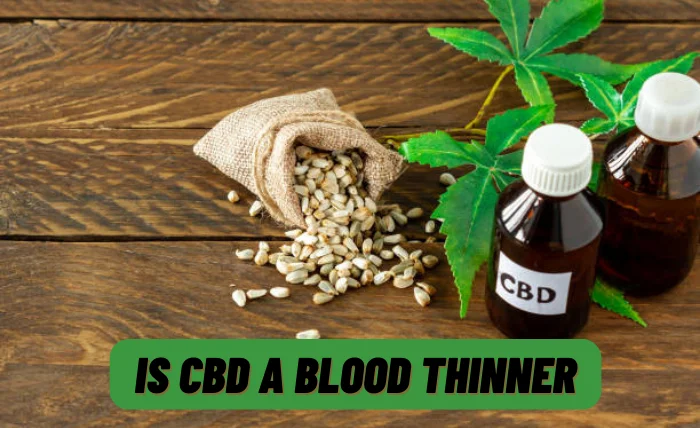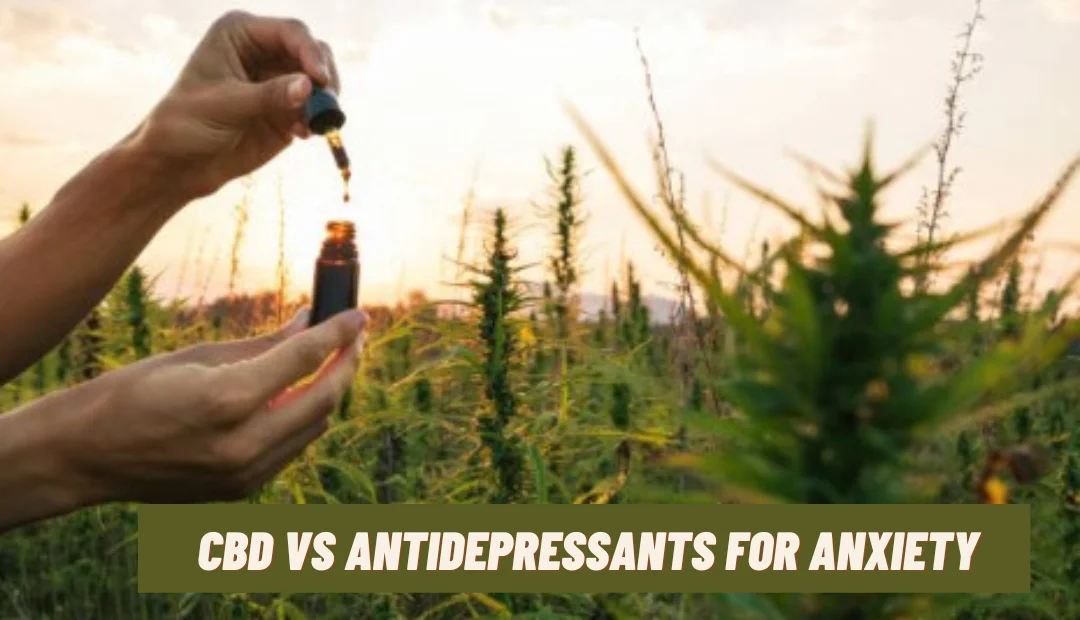One of the several cannabinoid substances present in cannabis is cannabidiol (CBD). It doesn’t seem to cause a “high” or change consciousness. Preclinical and clinical data supporting the use of cannabidiol for several neuropsychiatric illnesses, such as epilepsy, anxiety, and schizophrenia. It was discovered in a recent flurry of scholarly publications. There is proof that cannabidiol has a soothing impact on the central nervous system. Despite the surge in interest in CBD as a treatment for a variety of diseases. There aren’t many clinical investigations of the substance in the psychiatric literature. This study aimed to determine whether CBD is helpful for improving sleep and/or anxiety in a clinical population. Given the novel nature of this treatment. As a part of the evolving legal status of cannabis, our investigation also looked at patient acceptance.
Source of Cannabidiol
The two main species are Cannabis sativa and Cannabis indica. More than 80 distinct compounds, or cannabinoids, are present in the cannabis plant. Tetrahydrocannabinol (THC), the most prevalent cannabinoid. It is well known for its psychoactive effects. However, cannabidiol (CBD), the second-most prevalent cannabinoid. It’s nonpsychoactive. The plant is grown in a variety of strains with differing concentrations of THC and CBD. Marijuana plants are produce for recreational use. It has higher concentrations of THC than hemp plants grown for fiber and high amounts of CBD. It can be harvested to manufacture oil, hemp plants are grown for their fibers and high levels of CBD. Industrial hemp must have a THC content of less than 0.3% to be accepted as legal.
Cannabidiol for healthcare
The Cannabis plant has been utilized to cure a wide range of illnesses by many different civilizations. Practitioners in ancient China focused on constipation, gout, malaria, and menstrual problems. Cannabis was utilized as an analgesic in Western medicine and during the Middle Ages for pain, epilepsy, nausea, and vomiting.
There is some evidence to suggest that CBD may help treat depression right now.
Studies have suggested that CBD may change the brain’s serotonin levels. Serotonin is a neurotransmitter that affects mood, stress, and emotion management. Antidepressants in the selective serotonin reuptake inhibitor (SSRI) class also function by changing serotonin levels in the brain.
Nevertheless, while CBD may help with depression, it can also have negative side effects and can interact with other drugs (more on this below). It is best to see your doctor or therapist before using these medications.
Depression and Cannabidiol
Depression is a common mental health disorder that affects millions of people worldwide. It can cause feelings of sadness, hopelessness, and fatigue, and can impact a person’s daily life in a significant way. While there are several treatments available for depression, including therapy and medication, many people are turning to CBD as a natural alternative.
CBD work by interacting with the body’s endocannabinoid system. It plays a role in regulating mood, appetite, and sleep. By interacting with the endocannabinoid system, CBD may be able to help alleviate symptoms of depression.
Several studies have investigated the potential of CBD for treating depression. One study published in the Journal of Psychopharmacology found that CBD was effective in reducing anxiety and improving mood in people with social anxiety disorder. Another study published in the Journal of Clinical Psychology found that CBD was effective in reducing symptoms of depression in people with post-traumatic stress disorder (PTSD).
While CBD is generally considered safe, it can cause some side effects in some people, including nausea, diarrhea, and changes in appetite or weight. It is important to speak with a healthcare provider before using CBD for depression, as it can interact with other medications
Anxiety and Cannabidiol
Anxiety is a common mental health condition that affects millions of people worldwide. It is characterized by feelings of fear, worr There are different types of anxiety disorders, such as generalized anxiety disorder (GAD), social anxiety disorder, panic disorder, and post-traumatic stress disorder (PTSD).
Anxiety disorders are often treat with therapy and medication. However, some people may not respond well to traditional treatments or experience side effects that make it difficult to continue. This is where CBD comes in as a potential alternative.
CBD may help with anxiety by interacting with the body’s endocannabinoid system (ECS), which is responsible for regulating various physiological processes, including mood and stress responses. CBD can also help increase serotonin levels, a neurotransmitter that plays a role in regulating mood and social behavior.
Research has shown that CBD may help reduce symptoms of anxiety in both human and animal studies. In a 2019 study published in The Permanente Journal, researchers found that CBD can reduce anxiety levels in patients with sleep and anxiety disorders. Another study published in Neuro-therapeutics in 2015 found that CBD can reduce symptoms of anxiety in people with social anxiety disorder
Sleep Disorder and Cannabidiol
Sleep disorders are conditions that affect an individual’s ability to fall asleep, stay asleep, or get restful sleep. They can include insomnia, sleep apnea, restless leg syndrome, and narcolepsy. Sleep disorders can lead to fatigue, decreased productivity, and overall decreased quality of life.
CBD has been shown to potentially help with sleep disorders by reducing anxiety and promoting relaxation. CBD can also help regulate the sleep-wake cycle, which can improve the quality and duration of sleep.
There have been several case studies on the effectiveness of CBD in treating sleep disorders. In a 2019 study, 72 adults with anxiety and poor sleep given CBD. The participants reported improvements in both anxiety and sleep scores. Another study in 2018 found that CBD improved sleep in individuals with Parkinson’s disease. Additionally, a 2019 study found that CBD improved sleep in individuals with PTSD.
What is the state of the Cannabidiol and depression research?
For a variety of issues relating to physical and mental health, CBD has shown some preliminary promise. The most famous was a research at the Center for Medical Cannabis Research at the University of California, San Diego, which demonstrated that cannabis cigarettes reduced pain by 34% to 40% compared with placebo (17% to 20% decrease in pain). 8 In instance, CBD seems to have advantages for a host of neurologic conditions, including reducing severe seizures. A recent extensive trial with strict controls on children with epilepsy found that CBD was effective in reducing seizure frequency by more than 50%.
A crossover research contrasting CBD and nitrazepam discovered that a high-dose of 160 mg CBD lengthened slumber. Increased mental sedation may result from the higher CBD doses that studies suggest are helpful for anxiety, insomnia, and epilepsy.
Long-term use of 10 mg/d to 400 mg/d of CBD administration through various methods did not have a harmful effect on patients. Doses up to 1500 mg/d have been well tolerated in the literature. Although the majority of studies have used animal models and have demonstrated potential benefits, there are still few clinical data from randomized controlled trials.
Safety is the main advantage of using cannabis as a medication. With regard to either of the cannabinoids, there have been no instances of death overdoses, and significant problems are extremely rare, aside from worries about abuse. Current research suggests that cannabis has a low overall risk with short-term usage.
There are remarkably little formal clinical investigations, randomized clinical trials, and other forms of research on CBD in the field of psychiatry despite the promising biochemical, physiological, and preclinical findings. Clinical observations can be very helpful to enhance the body of knowledge and to propose issues for more research given the dearth of data in this field.
Is Cannabidiol safe?
Side effects of CBD include nausea, fatigue and irritability. CBD can increase the level of blood thinning and other medicines in your blood by competing for the liver enzymes that break down these drugs. Grapefruit has a similar effect with certain medicines.
People taking high doses of CBD may show abnormalities in liver related blood tests. Many non-prescription drugs, such as acetaminophen (Tylenol), have this same effect. So, you should let your doctor know if you are regularly using CBD.
A significant safety concern with CBD is that it is primarily market and sold as a supplement, not as medication. Currently, the FDA does not regulate the safety and purity of dietary supplements. So, you cannot be sure that the product you buy has active ingredients at the dose listed on the label. In addition, the product may contain other unknown elements. We also don’t know the most effective therapeutic dose of CBD for any particular medical condition.
How CBD Can taken?
CBD comes in many forms, including oils, extracts, capsules, patches, vapes, and topical preparations for use on skin. If you’re hoping to reduce inflammation and relieve muscle and joint pain, a topical CBD-infused oil, lotion or cream – or even a bath bomb- may be the best option. Alternatively, a CBC patch or a tincture or spray designedto be placed under the tongue allows CBD to directly enter the bloodstream. Outside of the US, the prescription drug Sativex, which uses CBD as an active ingredient, is approved for muscle spasticity associated with multiple sclerosis and for cancer pain. In the US, Epidiolex has been approve for certain types of epilepsy and tuberous sclerosis.
Conclusion
After exploring the potential benefits of CBD in treating Depression, Anxiety, and Sleep Disorders, it is clear that CBD has promising therapeutic potential. However, it is important to note that while CBD may be effective for some individuals, it may not be effective for everyone. It is important to consult with a healthcare professional before incorporating CBD into your treatment plan.
While more research is needed to fully understand the effectiveness of CBD in treating Depression, Anxiety, and Sleep Disorders, the available case studies and anecdotal evidence suggest that CBD can potentially provide relief for those struggling with these conditions.
It is important to keep in mind that the quality and purity of CBD products can vary widely, so it is important to choose products from reputable sources and to follow dosage recommendations carefully. Additionally, it is important to be aware of potential drug interactions with CBD and to consult with a healthcare professional before using CBD in conjunction with other medications.
CBD has the potential to offer a safe and effective treatment option for those struggling with Depression, Anxiety, and Sleep Disorders. Now available evidence suggests that it can be a valuable addition to a comprehensive treatment plan for those seeking relief.







Comment on “Cannabidiol(CBD) for Mental Health”